Energy strategy: No plans for new nuclear sites in Scotland
- Published
- comments
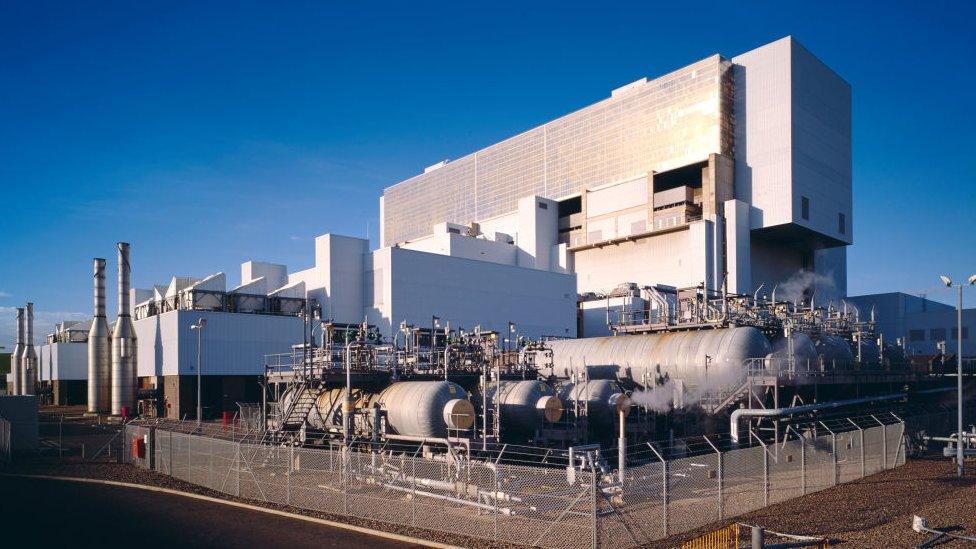
Torness is currently Scotland's only operational nuclear power station
No new nuclear power stations will be built in Scotland as part of the UK government's plans to boost energy independence, it has been confirmed.
UK ministers want to install eight new reactors at existing sites to help reduce reliance on oil and gas.
But the Scottish government is opposed to nuclear energy, and could block any new developments via planning powers.
Energy Secretary Kwasi Kwarteng said there were "no plans to impose nuclear reactors in Scotland" in future.
His Scottish counterpart Michael Matheson said the focus should instead be on accelerating the decarbonisation of the network and ramping up investment in energy efficiency.
The UK government plans will also see a new licensing round for oil and gas projects in the North Sea - something the Scottish government has also dismissed as not a short-term solution to energy concerns.
The UK government is setting out a new energy strategy, which includes plans to increase wind, hydrogen and solar power production.
It also aims to accelerate the use of nuclear power, with up to eight more nuclear reactors across England and Wales.
Ministers hope up to 24GW will come from this source by 2050 - representing about 25% of the UK's projected electricity demand.
'Devolved affair'
A new government body, Great British Nuclear, will be set up to bring forward new projects and a £120m Future Nuclear Enabling Fund will be set up this month.
However, none of the reactors will be built in Scotland, which now only has one operational nuclear station - at Torness in East Lothian, which is due to close in 2028.
Mr Kwarteng told BBC Radio's Good Morning Scotland programme the only way to decarbonise the UK's energy "baseload" was through use of nuclear energy, saying there was "huge appetite" for new projects in England and Wales.
He added: "We have no plans to impose nuclear reactors in Scotland. It's a devolved affair, it's up to people in Edinburgh to decide what their nuclear policy is."
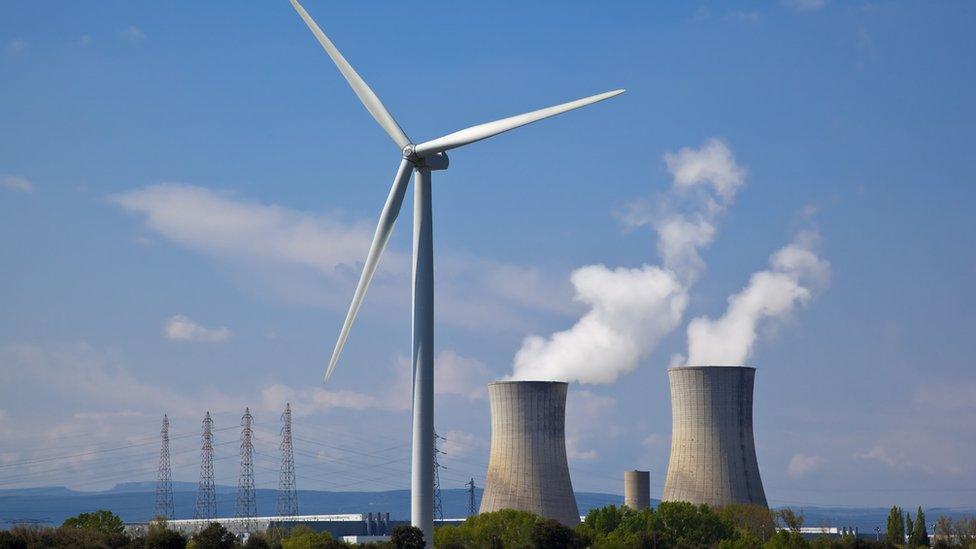
Mr Matheson told BBC Scotland the backbone of future energy supply should be offshore renewables, in particular wind farms.
And he dismissed nuclear power as being risky and expensive, saying it would need to be subsidised heavily by taxpayers.
He said: "Not only is there environmental risk associated with that, there is also the issue that this is likely to drive up the cost of household bills - whereas renewables such as wind and marine tidal in the future would actually reduce the cost of electricity.
"I think the UK government might have allowed themselves to be wrapped up in the nuclear lobby here."
'Pipe dream'
The GMB Scotland union has backed nuclear energy, with senior organiser Drew Duffy saying it was was "an absolute pipe dream that we could provide Scotland's energy needs on wind alone".
He said: "Yes there has to be renewables, wind is going to be part of an energy mix, but there are days when the wind doesn't blow. You could have a million wind farms, but if there's no wind they don't generate enough electricity to keep the lights on.
"Nuclear is green, it's safe, and it's continuous - you can have that as the baseline to make sure that the lights in Scotland stay on."


Nuclear power is licensed by the UK government, so there could only be new plants in Scotland with Westminster's approval.
What Kwasi Kwarteng has also made clear is that Holyrood's say-so would also be required.
Not only has the business secretary said he has no plans to "impose" new reactors, he's gone further by describing nuclear policy as a "devolved affair".
That approach may frustrate those in the UK government who wanted the energy security strategy to challenge the Scottish government's long-standing opposition to new nuclear.
The UK energy minister Greg Hands recently tried an alternative approach - appealing for a rethink in light of Russia's invasion of Ukraine.
However, he seemed to accept that because planning powers are devolved it would be very difficult to proceed without Scottish government consent.
At Holyrood, the SNP, Greens and Liberal Democrats are against new nuclear, while the Conservatives and Labour are, like the GMB union, in favour.
Without new plants Scotland will have no nuclear power by 2028 except that which is drawn from England on the shared electricity grid on days when the wind is not blowing strongly.

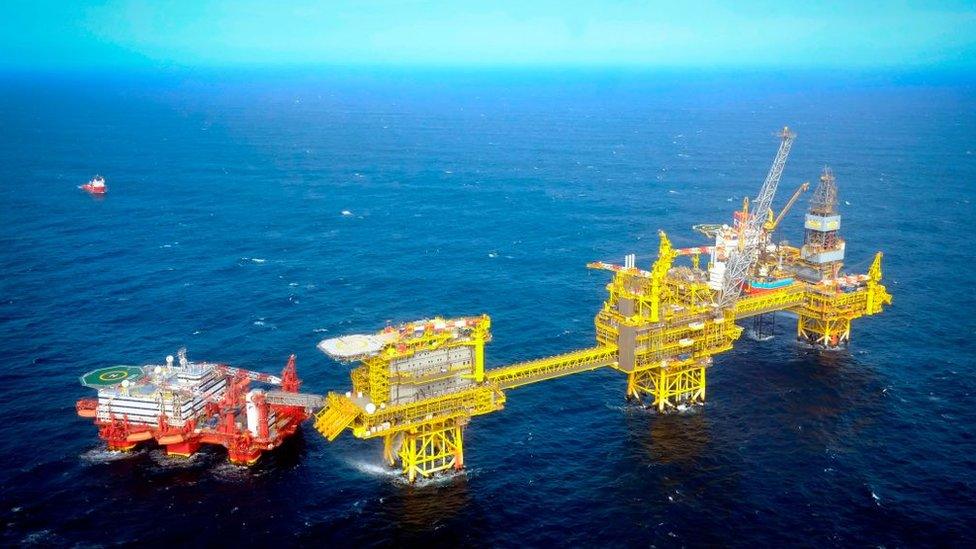
The UK government hopes to accelerate production of North Sea oil and gas
Scottish and UK ministers are also at odds over the future of domestic oil and gas supplies, with the energy strategy calling for fresh licensing in the North Sea.
Mr Matheson said any new development of reserves in the North Sea would need to be compatible with climate change goals - and would not come quickly or cheaply.
He added: "Even fossil fuels that come from Scottish waters are open to the vagaries of international markets. Oil and gas is an internationally-traded commodity, so if the prices go up internationally we can't insulate ourselves from that.
"That's why the objective is to move much more quickly towards renewables and energy efficiency."
The UK government said its commitment to more North Sea projects recognised "the importance of these fuels to the transition and to energy security", adding that producing gas in the UK had a lower carbon footprint than that imported from abroad.
However, last month the government's climate advisers said UK-produced gas would be sold internationally and would barely reduce the consumer price.
Scottish Secretary Alister Jack said the plans would "turbocharge energy production" and the key to that would be accelerating the use of green technologies.
He added: "We will also maximise oil and gas production in the North Sea, making the most of our existing assets and expertise. This will bolster domestic energy security while at the same time supporting Scottish jobs.
"Scotland will play a key role in achieving our ambitious energy security strategy, and we will work with the Scottish government to maximise our domestic energy supply."
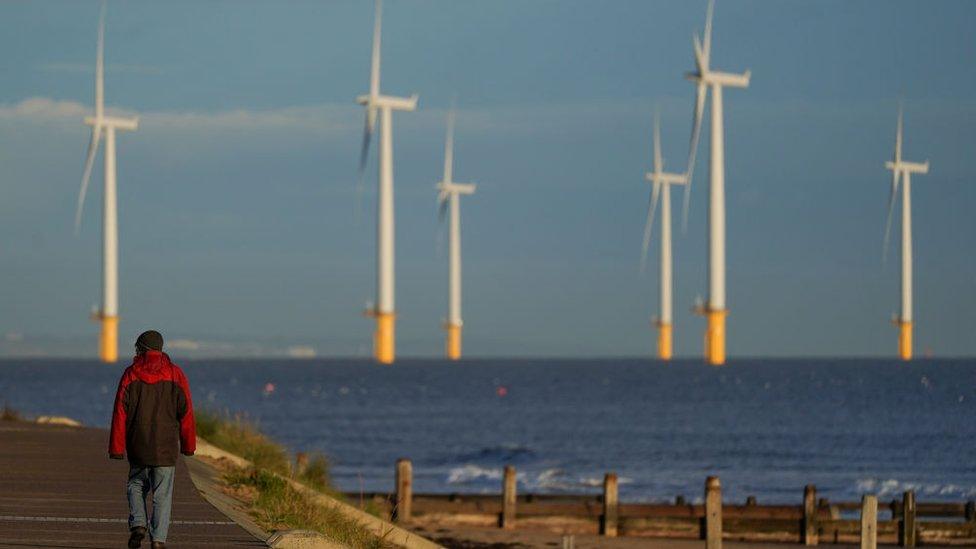
Although most aspects of energy policy are reserved to the UK parliament, planning is a devolved matter, external and therefore the Scottish ministers have the power to approve or reject new projects north of the border.
Deirdre Michie, chief executive of industry trade body Offshore Energies UK, said "energy security is now national security".
She added: "Many companies involved in UK oil and gas are already expanding into offshore wind, creating the infrastructure for mass hydrogen production, and building carbon capture and storage systems. They have the expertise not just in engineering but also in financing and managing these huge projects."
For offshore wind, the government said its new target would be to generate up to 50GW by 2030, more than enough to power every home in the UK.
For onshore wind, the strategy only commits to consulting on developing partnerships with "a limited number of supportive communities" who wish to host wind turbines in return for lower energy bills.
Keith Anderson, chief executive of Scottish Power, said: "Supercharging ambition on green energy security is to be welcomed - we have the projects and are ready to build them.
"It takes five times longer to get a project through the UK's planning system than to build it - that's got to change if we're to stand any chance of weaning our energy system off global gas and making a green future a reality."
Targets for hydrogen production are also being doubled, with an ambition of increasing capacity to up to 10GW by 2030.
Under the new plans, up to 95% of the UK's electricity could come from low-carbon sources by 2030.
- Published7 April 2022
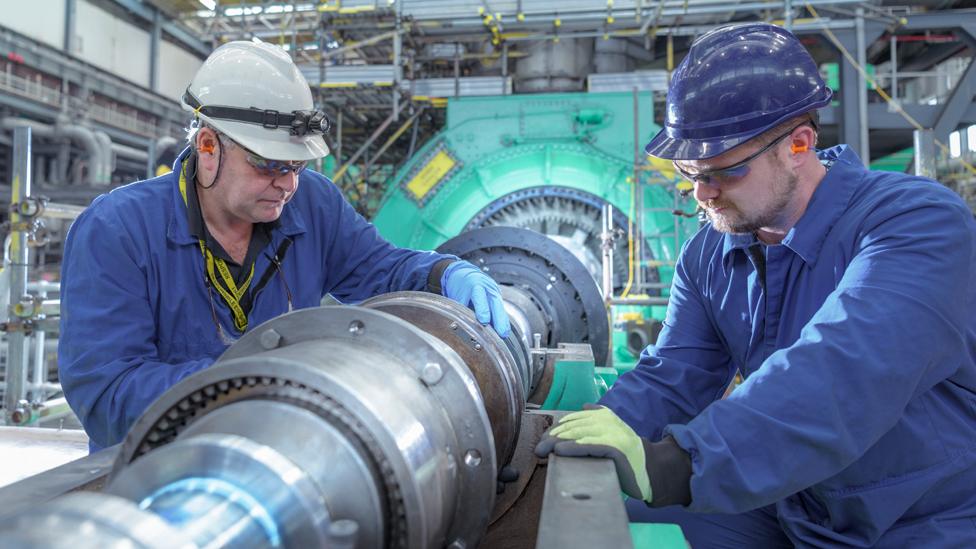
- Published8 February 2022
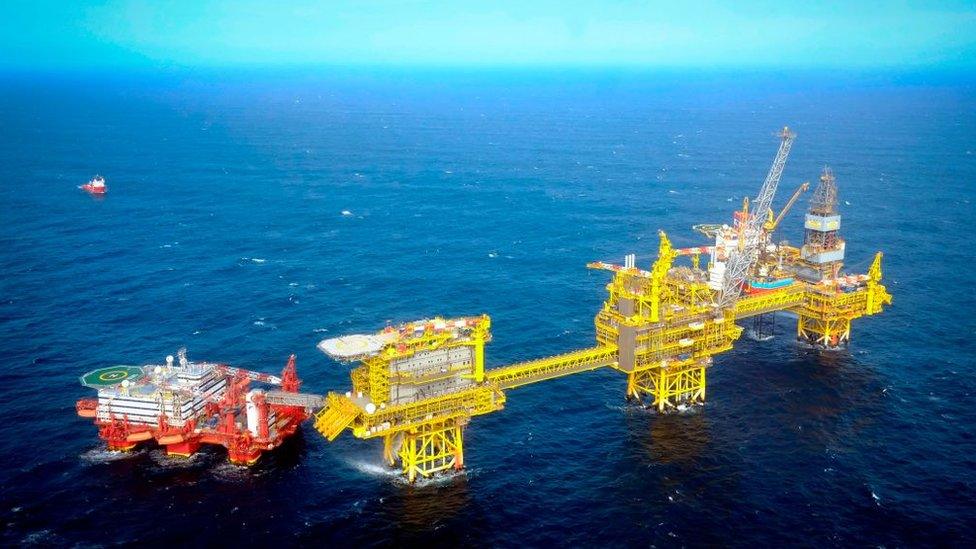
- Published29 March 2022
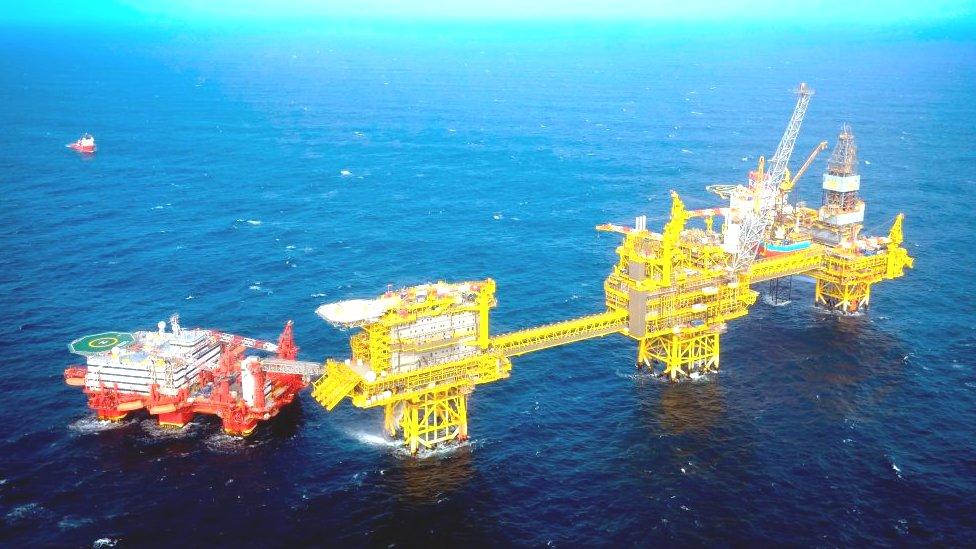
- Published30 March 2022
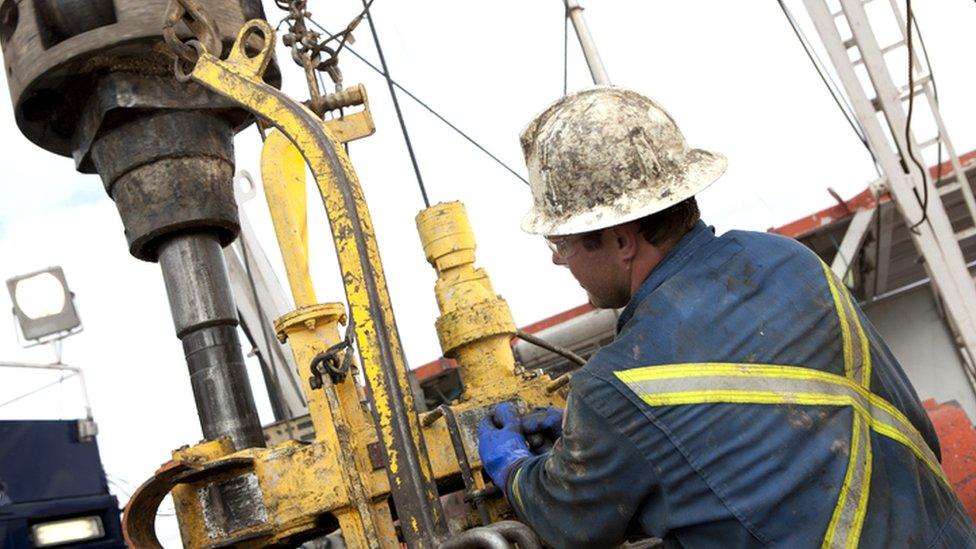
- Published21 March 2022
